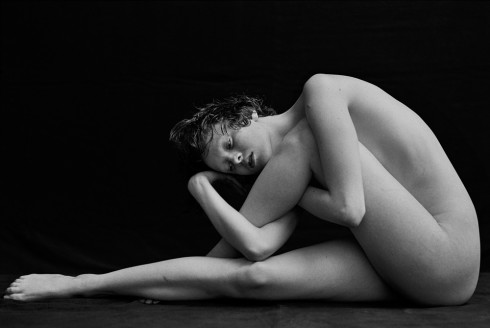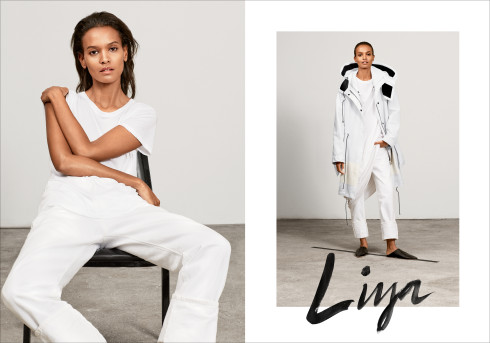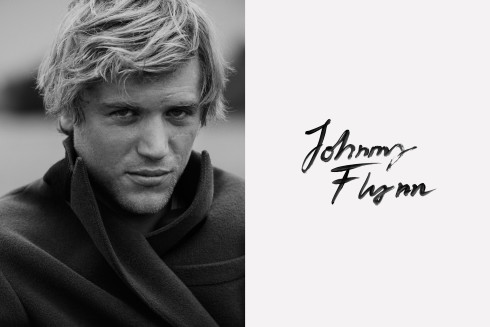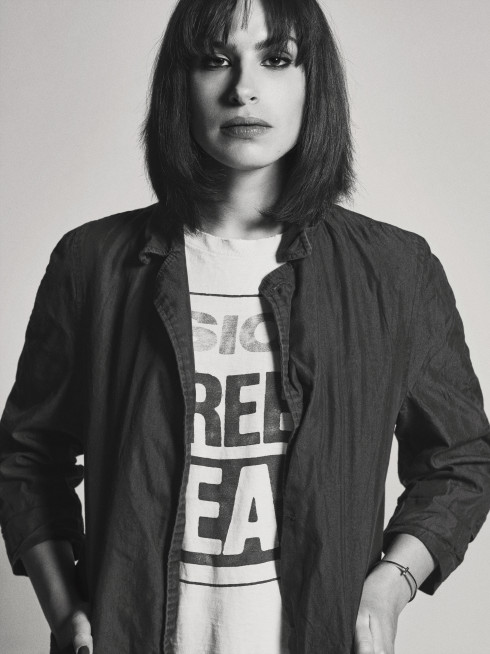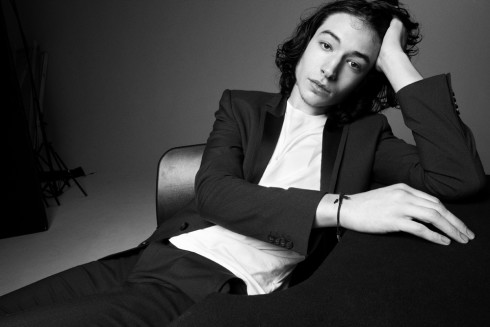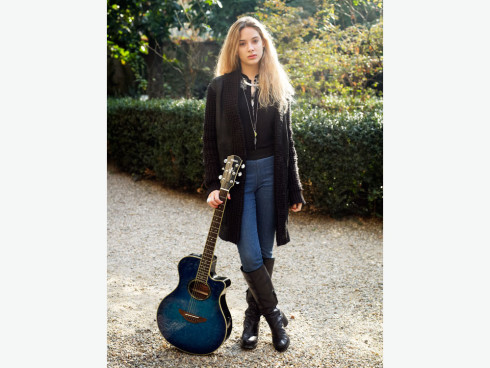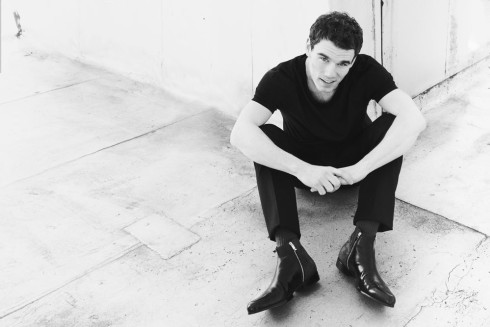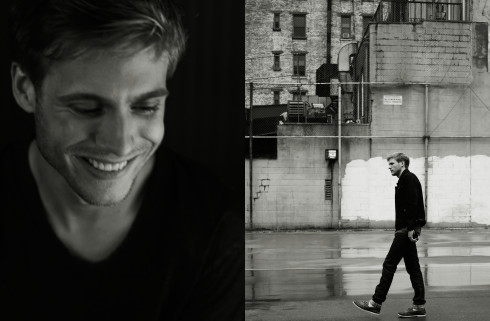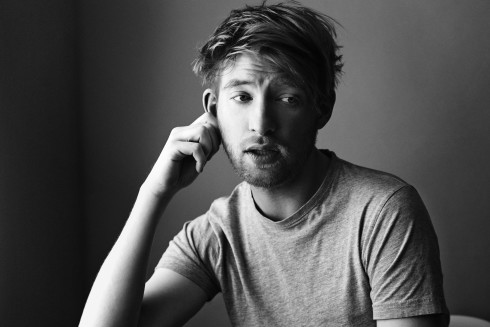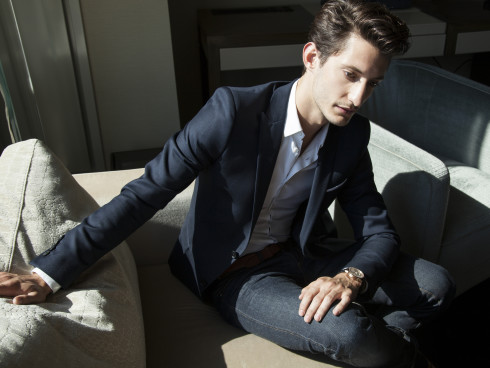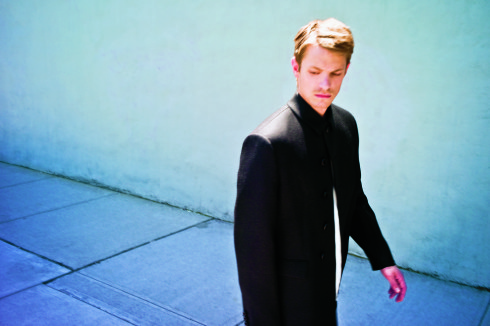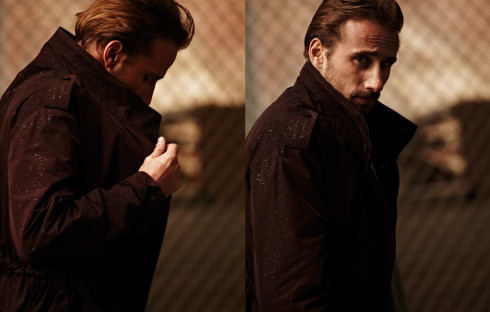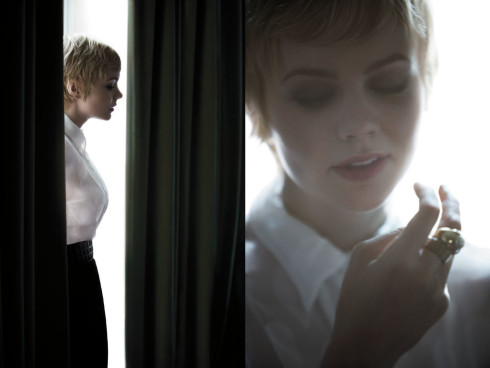
- By
- Niclas Gillis
- Photography by
- Johan Renck
FARES FARES
Fares Fares has come a long way since he and his younger brother Josef started their careers, as actor and director respectively, making Swedish comedies in the early 2000s. Their beloved 2003 film Kopps drew its humor from the painstaking lack of action for the Swedish police and offers a compelling juxtaposition to the dramatic heights of Fares’ most recent appearance, hunting down Osama bin Laden with SEAL Team Six in the Academy Award-winning blockbuster Zero Dark Thirty.
In his early days, Fares was something of a Swedish Paul Rudd—the straight guy in comedies, classically handsome in a shaggy sort of way, and always with an underlying sensitivity that made even his bad guys relatable. Now, at age forty, he has developed a more commanding presence. The dark of his eyes, the furrows of his skin, and the pitch-black hair that frames his face like rough steel wool give the appearance of a man who has crossed the desert to get to where he is.
Born in Lebanon in 1973, Fares and his family migrated to Sweden in 1987 to escape the Lebanese Civil War, which erupted just two years after his birth and lasted all the way to 1990. “It was a very difficult age to move,” Fares says. “Everything about Sweden was different and since I wasn’t really a child anymore, it was hard for me.” The family’s choice of destination was largely influenced by the fact that they already had relatives in Sweden. “My father’s sister told me not to get into one of those [refugee centers], since then you’d never become a part of society,” Fares remembers. “I knew that I had to learn the language quickly and just adapt to the new country.”

Within three months of their arrival, Fares could communicate in Swedish and promptly sought to immerse himself in the culture. “I was one of the first students with a foreign background in my school,” he says. “So the first two weeks were kind of exciting for the other students, but then they started to notice that I acted differently. I didn’t know what a lot of things were, and the small stuff made a big difference to them. But I didn’t get depressed about it. My mind works more like, If there’s something wrong here, I need to change it.”
At fifteen, Fares was introduced to the theater when an older woman whom he interviewed for a school assignment asked if he would like to join her theater group. “I remember I walked into the room and saw all these people running around and hugging each other and I was like, Oh God, this is not happening,” Fares says of his first experience with the group. “But just as I was about to walk out the door, someone tapped my shoulder and it was another kid my age. He was so happy that someone else his age was there, since it was otherwise only girls or younger guys there. The next time I went it was just for him, since I didn’t want to disappoint him, and then I realized it wasn’t all that bad with so many girls in the theater either.”
Fares continued to work with the group for another four years and moved to Gothenburg when he was nineteen to study acting full time. It was only by coincidence that his younger brother Josef got his hands on a VHS camera that same year, which sparked his interest in directing. Almost a decade later, the brothers wrote a script together that they presented to Memfis Film, the Swedish production company that has nurtured such Nordic auteurs as Lars von Trier and Lukas Moodysson. Though it passed on the script at hand, the company backed the brothers’ next collaboration, which was their mutual feature film début, Jalla! Jalla! in 2000.

Written and directed by Josef, starring Fares in the leading role, the comedy was an immediate success and made both brothers into household names in Sweden. Following the 2005 release of their pseudo-autobiographical drama Zozo, Josef was listed as one of the top ten directors to watch by Variety. Meanwhile, Fares was eager to branch out. “Sweden is very small,” he says. “If you want to have more choices and chances, you need to make the move out.”
Having pursued a Hollywood career for years without luck, everything changed in 2010, when Fares appeared in the critically-acclaimed Swedish crime thriller Easy Money, starring Joel Kinnaman. Based on the debut novel by Jens Lapidus and directed by Fares’ longtime friend Daniel Espinosa (who started his career assisting on Jalla! Jalla!), the film chronicled the interwoven lives of three disparate characters at odds in a Swedish drug trafficking ring. By mixing Scandinavian and American sensibilities, and treating all of the characters as complex human beings trying their best to be good men while spiraling down the moral ladder, the film breathed new life into a genre as old as the medium itself. It garnered the attention of Hollywood heavyweights Martin Scorsese and Harvey Weinstein, who ensured American distribution for the film, and consequently catapulted the parties involved to international renown.
“Daniel is great,” Fares says of the director. “He’s different from my brother because my brother’s so technical. Daniel really goes deep with a character and, as an actor, you can always feel safe with him.” After his success with Easy Money, Espinosa went on to direct the $85-million Hollywood blockbuster Safe House, starring Denzel Washington and Ryan Reynolds in the principal parts and Kinnaman and Fares in supporting roles. “For Daniel to be able to put me in one of those movies, I had to go through the whole audition process and all of the producers and the studio,” Fares says of the experience. “But if we didn’t have [Easy Money] to show them, it never would have happened.”
His next international role came in Kathryn Bigelow’s esteemed 9/11 spy thriller Zero Dark Thirty, in which Fares played Hakim, a Middle Eastern CIA operative who works alongside Jessica Chastain’s Maya, the film’s protagonist, to track down Osama bin Laden.
After revisiting Easy Money for the 2012 sequel, this time helmed by Babak Najafi and executive-produced by the former director, Fares, Kinnaman, and Espinosa returned to Hollywood for the Soviet crime saga Child 44. Based on a novel by the same title, the story is the first in a trilogy by British author Tom Rob Smith, who found inspiration for his narrative in the Ukrainian real-life serial killer Andrei Chikatilo. Adapted for the screen by Hollywood veteran and novelist Richard Price, the film follows fictional security officer Leo Demidov’s (played by Tom Hardy) pursuit of the killer against societal pressure, as Soviet doctrine insists that crime does not exist in a Communist society. Along with seasoned pros Philip Seymour Hoffman and Gary Oldman, the ensemble includes fellow Swedish actor Noomi Rapace and Zero Dark Thirty-alumnus Jason Clarke. “Working with Tom was great,” Fares says of his co-star. “I have a really good feeling that this will be one of the best movies of next year.”
Everything seems to point toward continued success for the Swedish actor. Meandering about the East African savanna in Cary Fukunaga’s recent fashion short for Maiyet, “Sleepwalking in the Rift,” Fares shows the romantic potential of a budding leading man, a rifle over his shoulder and a beautiful woman by his side.
“As a male actor, I think you don’t become really interesting until you pass thirty- five,” Fares says. “It’s not that you’re not good before, but you get a little bit more patient and you don’t make the same mistakes that you made when you were younger. I feel heavier as an actor now than when I did Jalla! Jalla! Not only was I literally fifteen kilos lighter back then, but it’s also the weight of age and experience. I think it makes you more interesting.”
Niclas Gillis is a Los Angeles-based writer and director. He is currently at work on his first narrative short film.
Styling by Ellen Af Geijerstam at LundLund. Makeup by Linda Öhrström at Link Details. Hair by Karl Eklund at Mikas. Photographer’s assistant: Marcus Röden. Stylist’s assistants: Martin Persson and Anna Timonen.
- By
- Niclas Gillis
- Photography by
- Johan Renck
